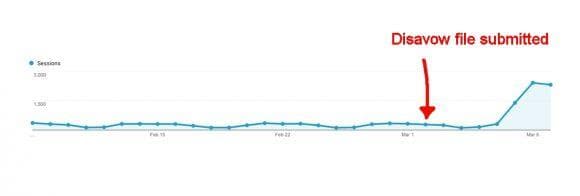
Technical SEO
Traditionally, the phrase Technical SEO refers to optimizing your site for crawling and indexing, but can also include any technical process meant to improve search visibility.
Technical SEO is a broad and exciting field, covering everything from sitemaps, meta tags, JavaScript indexing, linking, keyword research, and more.
If you’re new to SEO, we recommend starting with the chapter on Technical SEO in our Beginner’s Guide. Below are the latest posts on technical SEO, and we’ve included a few top articles here.
On-Site SEO : What are the technical on-page factors that influence your rankings? Our free learning center will get you started in the right direction.
The Web Developer's SEO Cheat Sheet : This handy—and printable—cheat sheet is invaluable for anyone building websites. Contains several useful references that cover a ton of technical SEO best practices.
MozBar : This free Chrome extension is an advanced SEO toolbar that helps you to examine and diagnose several technical SEO issues.
The Technical SEO Renaissance : Is it true that technical SEO isn't necessary, because Google is smart enough to figure your website out? Mike King puts this rumor to rest, and shows you what to focus on.
Technical SEO: The One Hour Guide to SEO : Want a quick introduction to the basics of technical SEO? Our guru Rand has you covered—all in about 10 minutes.


Faster Sites: Beyond PageSpeed Insights
PageSpeed Insights can be useful, but a perfect score doesn’t guarantee a fast site. There are smarter ways to assess and improve site speed.
How to Implement SEO Changes Using Google Tag Manager
Rigid CMS? Backed-up dev queue? Using Google Tag Manager, you can move past your issues implementing technical SEO changes and start adding structured data, canonicals, noindex tags, mobile switchboard tags, and more.
There's No Such Thing as a Site Migration
We all have horror stories of migration projects gone wrong. Things get missed, priorities change, and performance is impacted. Can we do better if we improve our definitions?
Half of Page-1 Google Results Are Now HTTPS
HTTPS results have topped 50% of page-1 Google rankings, according to our 10K tracking data. Dr. Pete explores the trends, major hold-outs, and what to expect in the near future.
Large Site SEO Basics: Faceted Navigation
Faceted navigation is great for users, but it negatively impacts SEO with duplicate content, wasted crawl budget, and inefficient use of link equity. Sergey Stefoglo shares how to tackle the issue of faceted nav in a more SEO-friendly way.
XML Sitemaps: The Most Misunderstood Tool in the SEO's Toolbox
XML sitemaps are a powerful tool for SEOs, but are often misunderstood and misused. Michael Cottam explains how to leverage XML sitemaps to identify and resolve indexation problems.
How to Get More of Your Search Console Data from the API (Plus, Learn How to Use Python)
Using the Google Search Console API, you can get up to 5,000 queries at once, apply multiple filters instantly, and run multiple queries quickly and easily. All it takes is a little elbow grease and some practice with Python.
Schema.org Just Released New Restaurant Menu Markup — Here's How to Get Started
Restaurant site owners rejoice — Schema.org just released a far more detailed way to mark up your menus in the SERPs. Check out the new possibilities and how to get started here!
How to Do a Content Audit
Learn how to do content audits for SEO in this Moz guide by Everett Sizemore, including tips for crawling large websites, rendering JavaScript content, and auditing dynamic mobile content.
Google Algorithmic Penalties Still Happen, Post-Penguin 4.0
Penguin penalties might be a thing of the past, but link-based algorithmic penalties still exist in Google.


